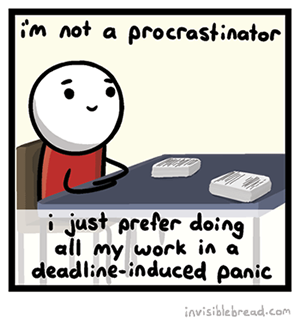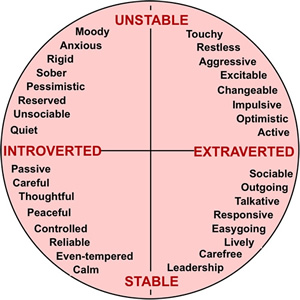Lesson 7: Motivational Interviewing - Planning
Attention

This graphic depicts a lot of the questions that we ask in the planning process, but it also shows something else...the answers to these questions are WRITTEN DOWN...there is
Learning Outcomes
Upon completion of this lesson's material, students will be able to:
- Discuss the challenges and importance of transitioning from "talk" to "walk."
- Create a personal plan for the completion of the requirements in this class.
Teaching
Planning
Read pages 23-25 in the CCNC Motivational Interviewing (MI) Resource Guide.
We have now arrived at the point in the process where we are PLANNING for change. Over the course of the previous steps in the MI process we have been gathering information (identifying problems and barriers, skills, resources, etc.) and have worked on motivation (the "why" behind the goal). Now we have to piece together the ACTUAL STEPS we are going to take to bring about change.
This is where the "rubber meets the road!" What this means is all the TALK (discussions about change) now has to transition into WALK (taking specific actions to bring about the change.) There are numerous challenges that may come up that thwart this process.
Planning Process
To help with the planning process click HERE to download a PDF of a form that walks you through the planning process. (HERE is an MS Word version if you want to type on it.)
When you actually write out the Treatment Plan for the assignment below, use THIS example as a guide. (Please note this is the same Treatment Plan format that you will be using in the Final Session of this course.
Challenges to Treatment Planning
Keep in mind that when we are talking about change, the talk is relatively safe and unchallengeable. However, as we begin to approach the implementation steps, we can run into trouble. Three major models of understanding resistance to change are important to cover here as you will encounter them in your practice. They are:
- Fear of Failure
- Procrastination
- Rehabilitation Crisis
Fear of Failure

When faced with a task you want to complete, there is always the risk of failure. The possibility of failure is an important component of success...we will try harder if there IS a possibility of failure. However, if a person becomes TOO anxious about failure, or has a tendency to globalize failure to their sense of self ("I failed therefore I am no good at all.) then "Fear of Failure" can become problematic.
Atychiphobia is the term used to describe an "abnormal, unwarranted, and persistent fear of failure." This is very rare, but can appear in small doses!
Check out this article in Psychology Today about 10 Signs You Might Have (too much) Fear of Failure.
According to Vanessa Loder at Forbes Magazine, there are you can conquer Far of Failure with 5 Proven Strategies.
Procrastination

The first thing I want to say about Procrastination is that it is NOT a personality type. People are not categorized into those who do and do not procrastinate. Procrastination is a behavioral pattern that people learn.
Procrastination is caused by a combination of two things: (1) Fear of Failure and (2) the relationship between High Cognitive Load tasks and Low Cognitive Load tasks.

To explain this in depth and to provide an effective time management tool to combat the Hi/Low Cognitive Load issue, I have prepared a presentation called "The Psychology of Procrastination".
Rehabilitation Crisis

One of the most fundamental developmental processes that occurs in the human lifespan is the development and affirming of Identity. Identity represents the internal "schema" or "concept" that we hold of ourselves. It is our own perceptions of who we are.
While the development of Identity is beyond the scope of this lesson let it be said that we rely on this concept to feel secure in the world. We seek stability in our work through constants and patterns and none are more important than the notion of a constant self. (Consider how unstabilized a person may become when aspects of themselves begin to change!)
So, here is what Rehabilitation Crisis is all about. As we have been talking about, our role is to facilitate change in a person, so we are constantly in a conflict between the forces that want to change a person (instability) and the forces that want to stay the same (stability). We should recognize that our work is fundamentally de-stabilizing in someone's life!
A person may have a Rehabilitation Crisis when they are approaching a threshold in their lives (starting a new medication, going to a job interview, beginning a new relationship) and they sabotage that change process in order to maintain their current concept of self.
This can be very frustrating to us as workers and very frustrating to our clients. The thought to keep in mind is that we are asking individuals to change who they are (and in some cases, to change other aspects of themselves such as how OTHERS perceive them, their finances, where they live, and the expectations others may have of them). These are fundamental and often scary changes for anyone to contemplate...even if the changes are in a positive direction! Remember, regardless of the QUALITY of a person's life, changes in identity are perceived of as INSTABILITY while staying the same is seen as STABILITY

Looking only at the Unstable vs Stable aspects of this image, notice the emotional aspects of being in an unstable place...moody, touchy, rigid, pessamistic...it is easy to understand why someone might be feeling these emotions when you consider the reality of identity change.
Our best approach to Rehabilitation Crisis is to be open in our conversations with our clients about it. We should engage our clients in discussions about what change means and explore how the think and feel about these changes.
We will be covering the importance of exploring the emotional side of change later in this class.
Spaniol, L. & Wewiorski, N.J. (2012). Phases of recovery process from psychiatric disabilities. International Journal of Psychosocial Rehabilitation. 17(1).
Assessment

Lesson 7 Lab
You are going to complete your third Lab Assignment as part of this lesson. The goal is for you to demonstrate your ability to engage your client in planning even though they may be reluctant to commit to a course of change. Your client should act a bit reluctant/scared/concerned about commitment to a plan of change. To complete the assignment read the instructions the Lab Tab/Section in Blackboard.
Lesson 7 Assignment
Prior to beginning the Practice Sessions in this course you are going to practice the creation of a treatment plan. This treatment plan will be based on YOUR goals in this class and your plan to complete all the requirements for this course.
Using the planning method described in this Lesson, create a treatment plan for yourself that outlines how you are going to complete all the course requirements from this point forward.
Use this
Lesson 7 Discussion
As was discussed in this Lesson, Planning is where the "rubber meets the road." Talking about change is one thing, acting on it is another. Discuss the challenges and importance of making this step. Identify how an effective implementation of the previous steps in the MI process make THIS step more likely.
Take into consideration the concepts of Fear of Failure, Procrastination, and Rehabilitation Criss. Reflect on your own experiences with these barriers to change.